The Verdict
Comprehensive Storyform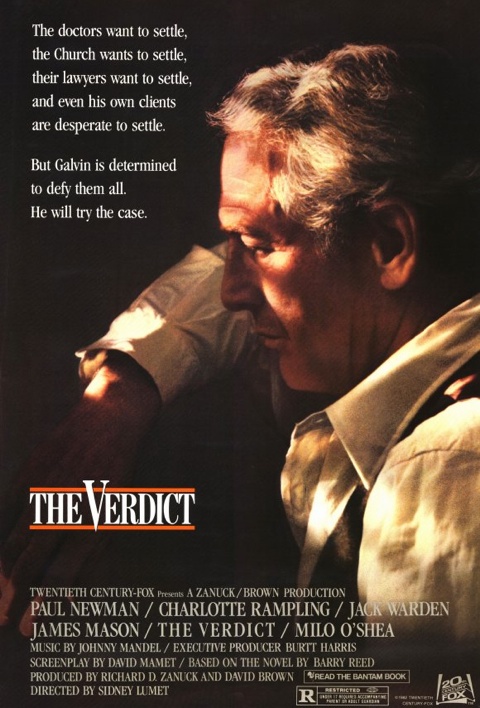
The following analysis reveals a comprehensive look at the Storyform for The Verdict. Unlike most of the analysis found here—which simply lists the unique individual story appreciations—this in-depth study details the actual encoding for each structural item. This also means it has been incorporated into the Dramatica Story Expert application itself as an easily referenced contextual example.
Story Dynamics
8 of the 12 essential questions
- Change
- Main Character Resolve
In the courtroom, after all his evidence has been disallowed, Frank reaches deep into himself and banishes his Disbelief. He musters a new Faith in the judicial system as a whole, telling the jury that THEY are the law, and no matter what forces work against the truth, he has faith they will do the right thing.
- Stop
- Main Character Growth
Frank must stop disbelieving that the Justice System is completely unjust.
- Do-er
- Main Character Approach
Frank acts impulsively and often regrets his actions which frequently forces him to make uncomfortable decisions.
- Male
- Main Character Mental Sex
Frank tries to determine the cause of Ms. Kay’s condition by examining the effects.
- Decision
- Story Driver
As a courtroom drama, the direction of the case follows various decisions and ultimately comes down to a single decision—the verdict.
- Optionlock
- Story Limit
There are only a finite number of witnesses and avenues of prosecution—once they’re explored, that’s it.
- Success
- Story Outcome
The jury finds the doctors guilty and awards Frank’s side a huge amount of money.
- Good
- Story Judgment
Frank is on the road to recovery by kicking the liquor, returning to practicing like a real attorney, and avoiding women he knows are bad news.
Overall Story Throughline
""Retrying the Coma Case""
- Universe
- Overall Story Throughline
A woman is permanently comatose and must remain in a hospital for the remainder of her life as the result of her physician’s negligence.
- Future
- Overall Story Concern
The relatives want a settlement to secure the comatose woman’s care and for their own future financial security; the doctor’s are concerned with their future careers—or lack of—if they are found negligent; the church is concerned with the future of the hospital and its reputation; the attorney’s on both sides share each of their respective clients concerns for the future; the judge is concerned with being re-elected.
- Openness
- Overall Story Issue
The very nature of the trial is to not take things at face value—even the sterling and unblemished reputations of the physicians may be found, upon re-evaluation, to be flawed.
- Preconception
- Overall Story Counterpoint
- Overall Story Thematic Conflict
Openness vs.Preconception - Disbelief
- Overall Story Problem
The Catholic church, which owns and runs the hospital where the woman was vegetized and remains bedridden, does not believe their physicians made any mistake to cause the woman’s condition; the physicians do not believe they have done anything wrong; the defense law firm does not believe it can possibly lose the case; the judge does not believe the case should even be brought to court; no one believes that the prosecuting attorney (Frank) could possibly win a court case.
- Faith
- Overall Story Solution
Despite the illegal dealings of the defense team, the unjust behavior of the judge, the credibility problems of the defense “expert,” etc., the jury accepts there was a wrongdoing by the defendants without certain proof of their guilt and correctly finds them guilty.
- Reconsider
- Overall Story Symptom
Frank reconsiders settling the case out of court after he sees the condition of the comatose woman; the doctor that agrees to testify for the prosecution reconsiders and leaves on “vacation” after the defense team gets to him; Frank reconsiders trying the case after his expert witness disappears; Laura reconsiders passing along information to the defense team after she determines that Frank cannot possibly win; the judge reconsiders what is admissible evidence after it has been presented and disallows the most damning witness to the defense.
- Consider
- Overall Story Response
Should the case be settled out of court for $200,00 or risk a trial with the potential for a greater financial settlement? Should Frank even risk going to court considering his past record and reputation? Should the church risk the possible tarnishing of itself, the reputation of its doctors and the reputation of the hospital, or should it concede to a higher settlement price? Should the senior nurse divulge the whereabouts of the admitting nurse or protect her anonymity? Should the prosecution reveal the illegal practices of the defense team and risk a repeat “reversal,” or proceed with its amazingly weak case?
- Delay
- Overall Story Catalyst
Frank’s procrastination introduces him to the case on the eve of its decision date; Frank asks for an extension or delay in the proceedings and the judge (in accordance with the defense team) forces the trial to start five days early without the possibility of a continuance; the more Frank tries to delay, the more everybody wants it over and done with.
- Dream
- Overall Story Inhibitor
The church and defense team believe that if they hold out with a settlement price of $200,000 the prosecution will take it and the whole thing will be over—however, Frank sees big dollar signs so the case goes to trial which slows down the closure of the affair; Frank’s “dream” girl Laura makes what would have been a simple case into a terribly difficult one by revealing to the defense team who the prosecution’s expert witness is and other key information; Frank bogs down the trial by attempting to make his hack expert witness appear to be competent—an attempt that is easily shot down by the defense; the admitting nurse’s dream of what it would be like to spend her life as a nurse is dashed and is the reason her identity is withheld.
- Past
- Overall Story Benchmark
Frank must find out what REALLY happened to Deborah Ann Kay; the more truth about what happened the night she was admitted into the hospital and the subsequent events that is found out, the closer to the solution of the case.
Additional Overall Story Information →
Main Character Throughline
Frank Galvin — Prosecuting Attorney
- Physics
- Main Character Throughline
Frank practices law, although rather poorly recently.
- Obtaining
- Main Character Concern
Frank wants big money from the settlement of the court case.
- Morality
- Main Character Issue
Frank decides to bring the case to court because he believes he can get a larger award—it just isn’t right what they did to that poor young woman; he also doesn’t want the physicians, people who are supposed to help other people, to be free to continue harming others through negligence.
- Self-Interest
- Main Character Counterpoint
- Main Character Thematic Conflict
Morality vs.Self-Interest - Disbelief
- Main Character Problem
Frank has lost all faith in the judicial system. As a younger man, he was framed for jury tampering and practically disbarred. Since that time he has done what was expedient, but never once truly believing that the judicial system was fair or just.
- Faith
- Main Character Solution
Ultimately, all of Frank’s evidence of the physician’s wrongdoing is disallowed. So Frank, in his closing statement, tells the jury that they are the judicial system, that they can tell what is wrong from what is right, and that he believes that they WILL do the right thing.
- Temptation
- Main Character Symptom
Frank thinks his problem stems from drinking, easy money (as in ambulance chasing), and women.
- Conscience
- Main Character Response
Frank doesn’t settle the case, but decides to bring it to trial even though he hasn’t had a successful trial case in years.
- Self-Interest
- Main Character Unique Ability
Frank’s “lack of handling” the case, due to his complete absorption in himself through alcoholism, has allowed the case to nearly come to term. His desire for a larger settlement influences his decision to bring the case to trial. His sole concern for winning the case allows him to break into someone’s mailbox and steal their mail in order to get information as to the whereabouts of the admitting nurse.
- Responsibility
- Main Character Critical Flaw
Frank felt it was his responsibility to reveal the jury tampering for which he was almost disbarred, he feels responsible for the comatose woman which almost gets him kicked off of the case, he thinks he is responsible for Laura’s interest in him which almost loses the case because she is a spy for the defense team.
- Understanding
- Main Character Benchmark
Bit by bit, Frank comes to believe that the cards are stacked against him. His key witnesses begin to disappear or are discredited; the “non-partial” judge has it out for him and is clearly partial to the defense; every offensive strategy is made known to the defense without his knowing; and finally the most damning evidence and testimony is struck from the record.
- Main Character Description
Frank is an attorney in his fifties. He is a slouch, a drunk, and an ambulance chaser. He had a promising career when he was younger, but he was framed for jury tampering and his life went downhill from there.
Additional Main Character Information →
Influence Character Throughline
Laura Fischer — Girlfriend/Spy
- Psychology
- Influence Character Throughline
Laura “psyches-out” both Frank and Mick. She lures Frank by playing hard to get and worms her way into his heart, being something she is not. She staves off Mick’s doubts by being assertive and open about his suspicions of her.
- Becoming
- Influence Character Concern
Laura would like to become a highly respected partner in a highly respected Boston firm.
- Responsibility
- Influence Character Issue
Because Laura is attractive, new to town, and recently hired to work for the defense team—thereby not associated with them directly, she can seduce Frank and find out his secrets.
- Commitment
- Influence Character Counterpoint
- Influence Character Thematic Conflict
Responsibility vs.Commitment - Oppose
- Influence Character Problem
Laura doesn’t really agree with the job that she has been given and although she does become a spy, she is really motivated to oppose her own actions.
- Support
- Influence Character Solution
Laura should aid in Frank’s efforts to win the case but she cannot bring herself to do so.
- Reconsider
- Influence Character Symptom
Laura’s difficulties with carrying out her job create more conflict within her as Frank’s honest and trusting behavior toward her counterpoints her dishonesty with him, and her growing suspicion based on new evidence that “her side” is defending some very guilty parties.
- Consider
- Influence Character Response
It seems to Laura that she can overcome her internal conflicts if she ignores new information and just bases her decision to continue as a spy by weighing the pros (long term advancement with a reputable law firm) versus the cons (temporary assignment on a disagreeable case).
- Commitment
- Influence Character Unique Ability
Laura remains a spy long past the time she has found it completely despicable due to her ability to stick with the commitment she made to the law firm.
- Morality
- Influence Character Critical Flaw
Laura’s efforts to undermine Frank’s case are themselves undermined by her need to prod him to continue, even to the point of revealing her duplicity to give him the extra push he needs.
- Conceptualizing
- Influence Character Benchmark
Laura gets more and more conflicted as she sees Franks case getting weaker and weaker due to her feeding the defense team all of his strategies without his knowledge.
- Influence Character Description
Laura is an attractive woman in her thirties. She is a career minded attorney, new to the Boston area. As a professional in a predominately male profession, she believes that she must do whatever is necessary to compete with her male counterparts.
More Influence Character Information →
Relationship Story Throughline
""Sleeping With the Enemy""
- Mind
- Relationship Story Throughline
Frank and Laura clash over their attitudes about the case; Frank is a defeatist and Laura is a fighter willing to hang on to her beliefs to the bitter end.
- Subconscious
- Relationship Story Concern
Frank’s feeling that down deep he is a loser infuriates Laura.
- Closure
- Relationship Story Issue
To ultimately help Frank, Laura must tell him that she has been working for the opposition—even though she knows it will force him to leave her; Frank ultimately decides not to answer Laura’s calls and let what was probably the first, best, and only deep relationship he has had since his marriage fall away.
- Denial
- Relationship Story Counterpoint
- Relationship Story Thematic Conflict
Closure vs.Denial - Avoid
- Relationship Story Problem
Frank wants to take the easy way out when things get tough, but Laura doesn’t want him to give up and chastises him when he admits defeat.
- Pursuit
- Relationship Story Solution
Frank has to confront Laura directly about her rumored duplicity.
- Reconsider
- Relationship Story Symptom
Frank pursues Laura with the hope that she will reconsider her lack of interest in him (which she does); Laura asks Frank to reconsider certain defeatist approaches; when her duplicity is discovered, Frank is required to reconsider his relationship with her, while Laura also sees that their relationship needs some reconsideration.
- Consider
- Relationship Story Response
Frank and Laura try to keep things in balance between them by weighing the pros and cons of their relationship; eventually, Frank determines that the cons outweigh the pros.
- Hope
- Relationship Story Catalyst
When Laura indicates that she might be interested, Frank is spurred on to pursue her more aggressively; as Frank seems to change his attitude and become less defeatist, Laura is encouraged and sees that their relationship may develop further.
- Choice
- Relationship Story Inhibitor
Every choice that Frank makes about the case unwittingly throws road blocks in their relationship because Laura, as a spy, has to convey the information to the opposition.
- Memory
- Relationship Story Benchmark
As Frank remembers what it was like before his “fall,” he is able to get closer to Laura.
Additional Relationship Story Information →
Additional Story Points
Key Structural Appreciations
- Future
- Overall Story Goal
The objective characters’ future will be determined by the verdict.
- Subconscious
- Overall Story Consequence
Examples of how basic drives and desires will serve as the consequence of failing to achieve the goal are: the couple will feel guilty if they abandon the woman, or feel resentful if they continue to carry the financial burden of maintaining her care; the doctors will lose all credibility and may not be able to continue practicing; the church and the hospital will be seen as uncaring monsters; it will confirm Frank’s doubts about his fitness for being an attorney; it will introduce a feeling of vulnerability in the defense team that will shake their confidence; Laura will be guilt ridden if all her efforts were in vain.
- Becoming
- Overall Story Cost
Laura becomes a spy for the defense—something she clearly is not comfortable with; the church becomes an aggressor which is contrary to its sense of self; the couple become dependent on Frank which places them in a position of immense vulnerability; the judge becomes an obvious ally of the defense team which calls into question his ability to be impartial; Frank becomes dependent on Laura for motivation and direction which undermines his effectiveness as the prosecuting attorney.
- Obtaining
- Overall Story Dividend
Frank gets his practice back; the defense team gets a new member in the person of Laura; the admitting nurse is able to clear her record; Frank is able to right the wrong that was done to him early in his career.
- Past
- Overall Story Requirements
Frank must find out what REALLY happened the night Debora Ann Kay was admitted to the hospital.
- Memory
- Overall Story Prerequisites
The event happened a long time ago and is dependent on people’s recollections—available by asking witnesses what had happened—the admitting nurse, the doctors, the other members of the hospital staff, the family members.
- Conceptualizing
- Overall Story Preconditions
Because the case is going to trial, a scenario for WHY the events occurred as they did must be created to convince the jury of the relevance and value of what actually happened.
- Understanding
- Overall Story Forewarnings
Bit by bit, Frank comes to believe that the cards are stacked against him; his key witnesses begin to disappear or are discredited; the “non-partial” judge has it out for him and is clearly partial to the defense; every offensive strategy is made known to the defense without his knowing; and finally the most damning evidence and testimony is struck from the record.
Plot Progression
Dynamic Act Appreciations
Overall Story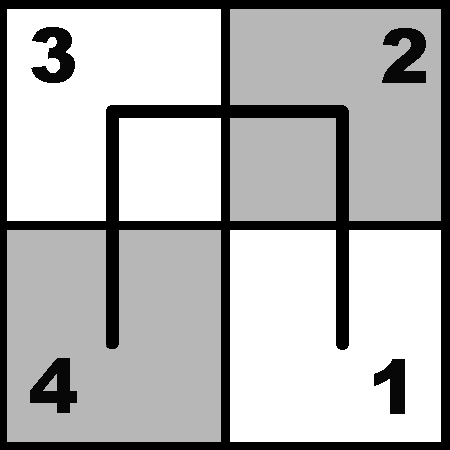
- Present
- Overall Story Signpost 1
- Progress
- Overall Story Signpost 2
- Past
- Overall Story Signpost 3
- Future
- Overall Story Signpost 4
Main Character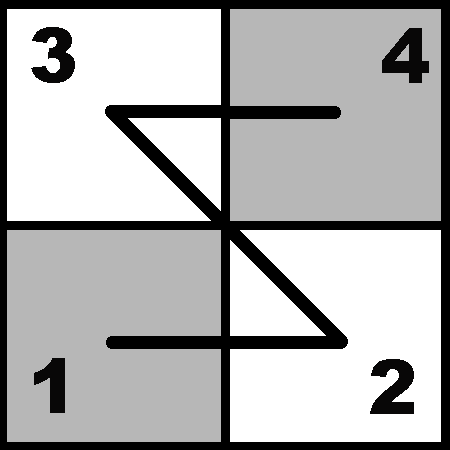
- Obtaining
- Main Character Signpost 1
- Learning
- Main Character Signpost 2
- Understanding
- Main Character Signpost 3
- Doing
- Main Character Signpost 4
Influence Character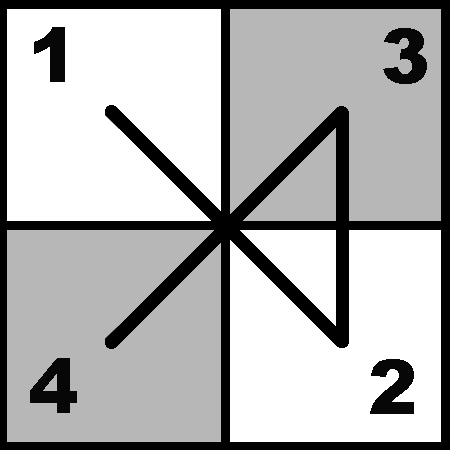
- Conceptualizing
- Influence Character Signpost 1
- Conceiving
- Influence Character Signpost 2
- Being
- Influence Character Signpost 3
- Becoming
- Influence Character Signpost 4
Relationship Story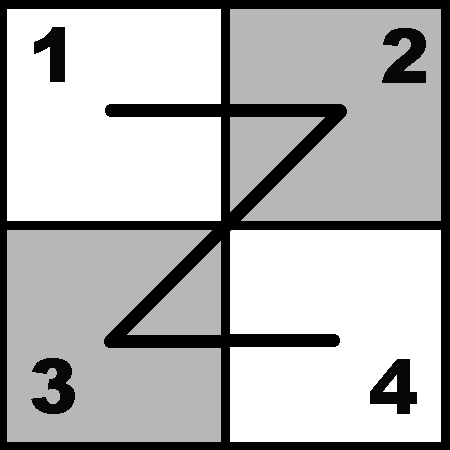
- Memory
- Relationship Story Signpost 1
- Preconscious
- Relationship Story Signpost 2
- Subconscious
- Relationship Story Signpost 3
- Conscious
- Relationship Story Signpost 4
Plot Progression Visualizations
Dynamic Act Schematics
OS:  MC:
MC:  IC:
IC:  RS:
RS: 




